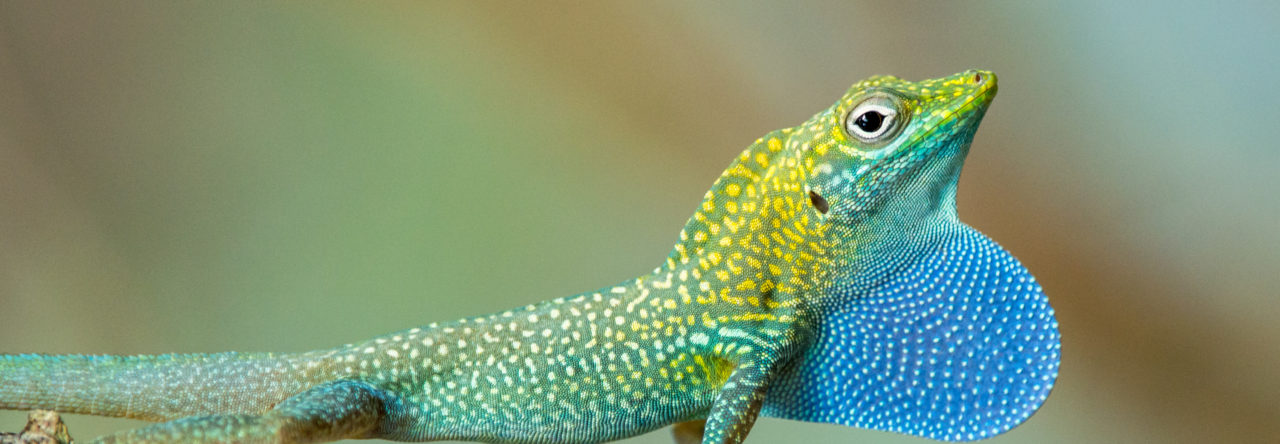Anolis brunneus is a close relative of A. carolinensis, but is unusual in that it has lost the ability to turn bright green–the best it can manage is a dull olive. Little is known of this species, but you can read the latest from a recent expedition led by Thom Sanger and Michele Johnson (1,2).
While on this trip, Michele and her student Andrew Bartley observed the following fracas between two male brunnei (incidentally, A. brunneus attains a size greater than most A. carolinensis and comparable to the largest A. porcatus).
Michele tells the story: “Near the end of our first full day of fieldwork on Crooked Island, part of our field team (Trinity University student Chris Robinson, recent graduate Andrew Battles, and myself) observed two males displaying extensively to one another, in full blue head color with their crests raised and their black “armpit” spot showing. (This seems to be a variation on the black eyespot in A. carolinensis that appears when the lizards are threatened.) We watched the lizards posture at each other for some time (perhaps 15 minutes), chasing and retreating, with many dewlap extensions and head-bobbing displays. The lizards eventually locked their jaws in the fight, and remained in this position for about 20 minutes, until one lizard threw the other off the tree branch – but the “hanging” lizard hung on, eventually pulling himself back up to the branch, and ultimately threw the other lizard off the branch entirely. During the fight, I took pictures from the ground, while Andrew climbed a tree (~3m up) to take pictures from the perch height of the lizards. It was quite an exciting way to end our first day of behavioral observation!”
- Evolution in Real Time on Lizard Island - March 23, 2025
- Spider Snags Adult Anolis osa - March 22, 2025
- An Homage to the Green Anoles of New Orleans - March 21, 2025




Veronika Holanova
Great observation! I saw something like that too- battle of two males Anolis equestris persparsus.
Jonathan Losos
Ouch!